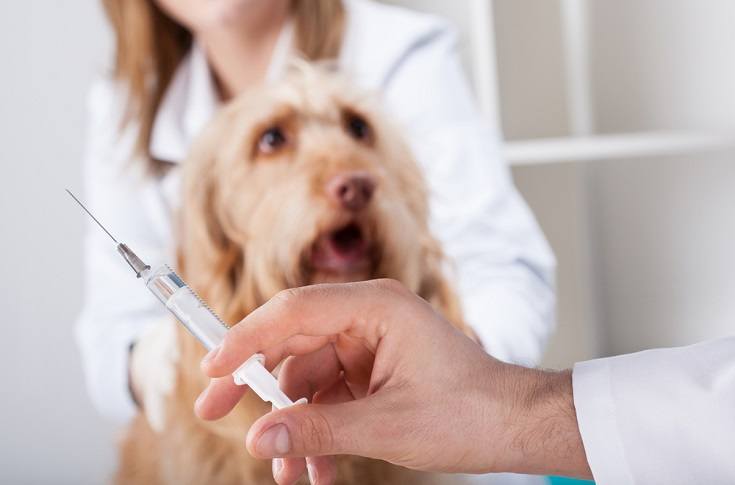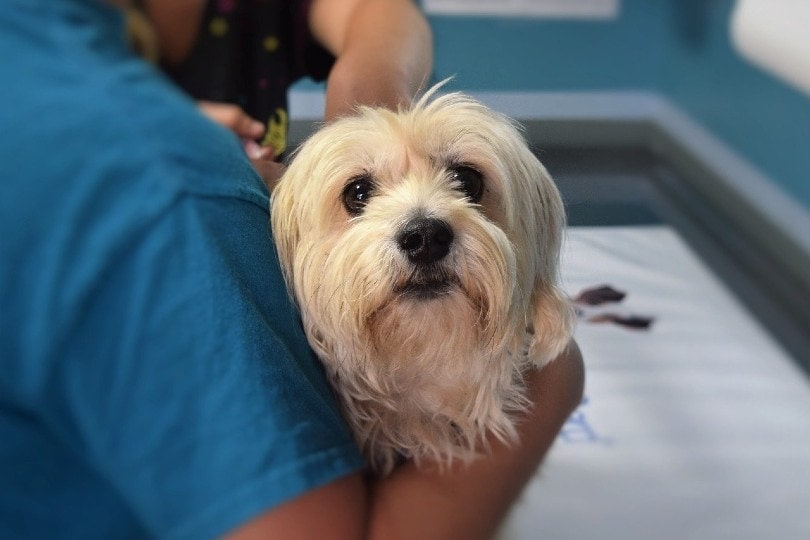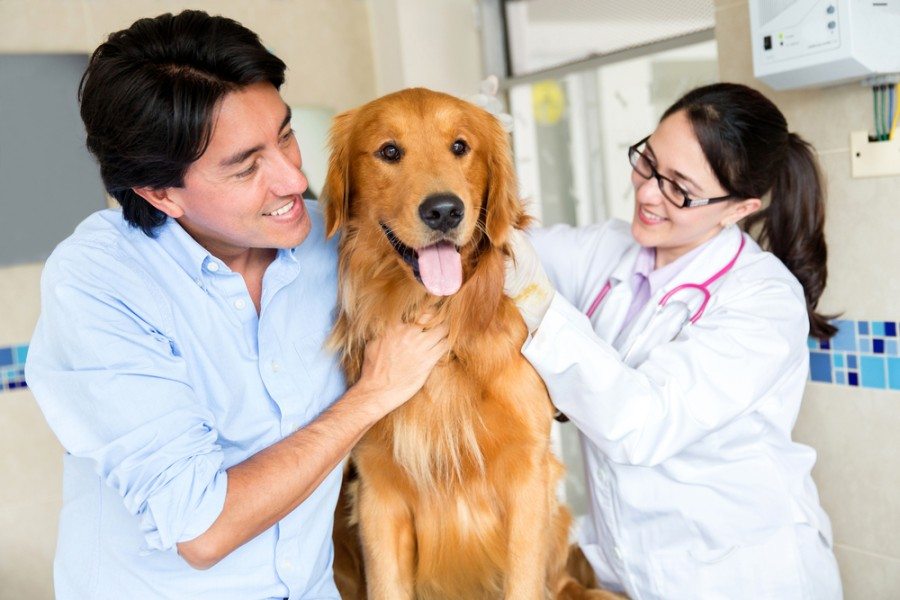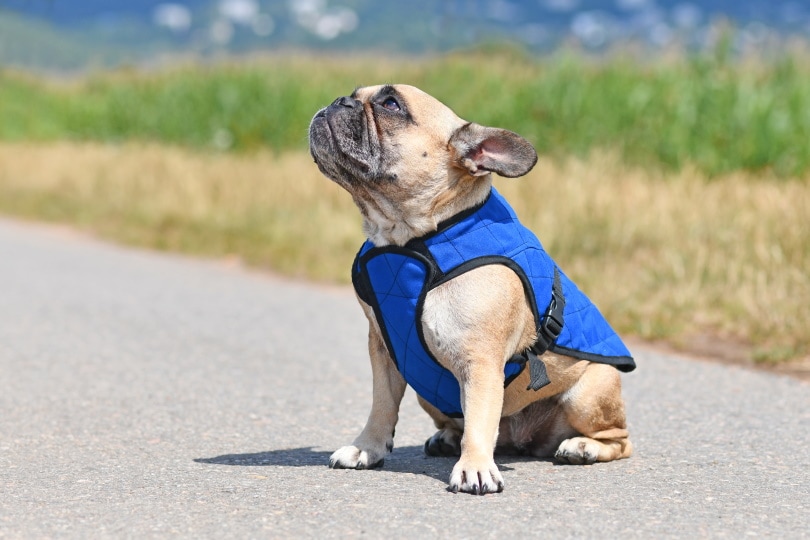How Much Is a Rabies Shot for a Dog? (2024 Update)

Updated on

Click to Skip Ahead
An essential part of taking care of a dog is making sure they stay up to date on their vaccination schedule. Since rabies is not treatable and almost always leads to death, rabies vaccinations are part of the law throughout the United States and in many other places around the world.
Rabies vaccinations help keep us humans safe from the disease too. Your dog will get multiple rabies vaccinations throughout their life, starting at around the age of 3 months. So, how much will a rabies shot cost? You can expect to pay between $6-$30 for a rabies shot for a dog. We go over the answer (and more!) for you here.
The Importance of Rabies Vaccines for Dogs of All Ages
Rabies is a disease of the central nervous system. As the disease progresses, it overtakes the brain and causes death. Unfortunately, once signs and symptoms of rabies develop, it is almost always too late to save the life of the infected dog. If the infected dog bites or scratches another animal or a human, it is almost certain that the injured animal or human will become infected.
There is an almost 100% survival rate in dogs infected with rabies if they have the neutralizing antibody from vaccinations. Most states in the U.S. have laws regulating the administration of rabies vaccinations. Therefore, it’s extremely important for your dog to get an initial rabies vaccine and regular booster shots thereafter.
How Much Does a Rabies Shot for a Dog Cost?
The cost of a rabies shot for a dog can vary depending on various factors. These may include but are not limited to the area in which you live, the age of your dog, whether your dog is up to date on their vaccinations, and whether you have pet insurance of any kind.
That said, we gathered specific price examples for a few places in the United States, to give you a clear idea of what you can expect to pay when you take your dog to the vet for their first rabies shot or a booster. Here’s the breakdown:
- Washington and Oregon: Good Neighbor Vet, which has locations throughout Washington and Oregon, offers rabies vaccines as part of vaccination packages that it sells, which can range from $100 to $200. It also offers standalone rabies vaccines for $50 each.
- New York: Value Vet Hospital, located in the Bronx, offers rabies vaccinations for $40 each, whether they are being administered with other vaccines or on their own.
- California: Contra Costa Animal Services in Martinez offers a variety of vaccinations for dogs, which are all priced separately. Rabies vaccines happen to cost about $6!
- Mississippi: Mississippi Spay and Neuter, headquartered in Richland, will administer a rabies vaccination to your dog for $13, according to its price list.
- Colorado: Foothills Animal Shelter, founded in the city of Golden, hosts vaccination clinics regularly and will administer rabies vaccines for just $20 each.
As you can see, prices range depending on the location. You may find that prices fluctuate from provider to provider in your home area too, so consider calling a few service providers to find out their costs if you want to be sure you’re getting the best bang for your buck.

Additional Costs to Anticipate
Most service providers that offer standalone rabies vaccine administration include the cost of the vet visit with the cost of the shot to make it easy for pet owners to budget the veterinary services that their dogs need. However, some veterinarians may charge a base fee for the visit on top of the cost of a rabies vaccine, so it’s important to call ahead and verify what other costs, if any, you can anticipate.
Also, if your vet spots signs of a health problem that must be checked out and/or treated, you may end up facing additional costs. Therefore, it’s a good idea to schedule a checkup for the same time that you schedule a rabies shot so you are aware if anything comes up that must be addressed in addition to getting the rabies shot.
How Often Should My Dog Get a Rabies Vaccination?
According to the CDC, an initial rabies vaccination should be administered to a dog no earlier than 3 months of age. Most veterinarians start the rabies vaccination schedule at this time. However, it’s important to note that it is never too late to have a dog initially vaccinated for rabies.
The CDC recommends that a booster vaccine be administered 1 year after the initial and again once every 1 to 3 years, depending on the type of vaccine being used. You should be aware that most counties throughout the United States maintain this schedule as law, not as a recommendation.
Does Pet Insurance Cover Rabies Shots?
Traditional pet insurance typically does not cover routine care because it is designed to cover only unexpected illnesses and accidents. Since rabies vaccinations are considered part of routine care, they would not be covered. However, some pet insurance companies offer customers the opportunity to purchase a “wellness” add-on of some kind. Wellness care would cover a portion of vaccination, dental, and other routine care costs as time goes on.

What to Do Between Rabies Vaccinations to Keep Your Dog Safe
Fortunately, rabies vaccinations are extremely effective and should keep your dog safe whenever they venture outside. Even if they do come into contact with a stray or wild animal that has been infected with rabies, the vaccination should keep them from developing any symptoms or getting ill.
While you should always do what you can to keep your dog from interacting with stray and wild animals, there are no specific steps that you need to take to protect your pet from rabies aside from making sure you’re following their vaccination schedule.
Conclusion
Making sure your dog gets their rabies vaccinations when scheduled is the most effective way to protect them and your family from becoming infected with the disease. Know what the laws are in your county to ensure that you don’t end up breaking them.
Featured Image Credit: Photographee, Shutterstock










